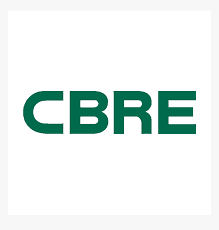Preparing for a job interview can be a daunting task, especially if you are interviewing for a position in the highly competitive real estate industry. However, with the right preparation and mindset, you can ace your interview and land the job of your dreams. In this blog post, we will provide you with some tips on how to prepare for a real estate job interview.
- Research the company and the role: Before your interview, it is important to research the company and the role you are applying for. Go through their website and social media pages to learn about their mission, values, and culture. This will help you understand what the company is looking for in a candidate and tailor your responses to align with their goals.
- Review the job description: Make sure to read the job description thoroughly and identify the key skills and qualifications required for the role. This will help you anticipate the questions you may be asked during the interview and prepare your responses accordingly.
- Practice your responses: It is essential to practice your responses to common interview questions, such as “Tell me about yourself” and “What are your strengths and weaknesses?” You can also research common real estate interview questions and practice your responses with a friend or family member.
- Prepare examples: To showcase your skills and experience, it is important to have specific examples ready to share during the interview. Think of times when you demonstrated your skills, such as closing a difficult deal, working with a difficult client, or managing a challenging project.
- Dress appropriately: Dressing appropriately is important for making a good impression on your interviewer. It is recommended to dress in business attire, such as a suit or a dress with closed-toe shoes.
- Bring a copy of your resume: It is always a good idea to bring a copy of your resume to the interview, even if you have already submitted it online. This will help your interviewer reference your qualifications and experience during the interview.
- Be on time: Punctuality is important for making a good impression on your interviewer. Make sure to arrive at least 10-15 minutes early for your interview to allow for unexpected delays.
- Be confident and positive: During the interview, it is important to be confident, positive, and enthusiastic about the role and the company. Smile, maintain eye contact, and listen attentively to your interviewer’s questions.
- Follow up: After the interview, it is important to follow up with a thank-you email or note. This will show your interviewer that you appreciate their time and are still interested in the position.
In conclusion, preparing for a real estate job interview takes time and effort, but it is worth it in the end. By researching the company and role, practicing your responses, preparing examples, dressing appropriately, being punctual, and following up, you can increase your chances of landing the job of your dreams.

















